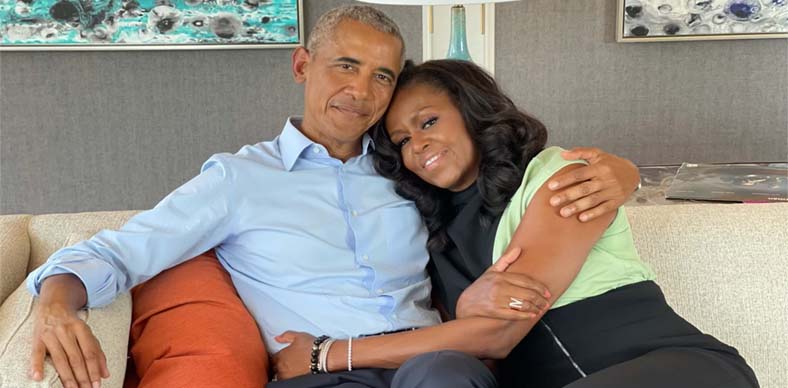Michelle Obama, former First Lady of the United States, recently addressed and firmly denied persistent rumors surrounding her marriage to former President Barack Obama. In a candid conversation with actress Sophia Bush on the podcast “Work in Progress,” she clarified the reasoning behind her absence from two significant political events: President Jimmy Carter’s funeral and former President Donald Trump’s inauguration. These absences, she explained, were personal choices, yet they fueled unfounded speculation about the state of her marriage, even prompting some to assume an impending divorce. Michelle expressed her frustration with societal expectations placed on women, particularly the pressure to conform to predetermined roles and the negative interpretations applied to decisions that deviate from these norms. She emphasized the importance of women making choices for themselves, independent of external pressures or perceived obligations.
Michelle further elaborated on the challenges women face when making independent choices, often feeling compelled to prioritize others’ expectations over their own needs and desires. She noted that when women do assert their autonomy, their decisions are frequently met with skepticism and negative labeling, reinforcing the constraints imposed by societal norms. She connected this phenomenon to her own experiences, highlighting how her absence from high-profile events was immediately attributed to marital discord, rather than being recognized as a personal choice. This, she argued, underscores the pervasive societal expectation that women should prioritize public appearances and conform to certain roles, often at the expense of their own preferences and well-being.
The former First Lady, who recently celebrated her 61st birthday, used the podcast platform to reflect on her life’s trajectory and explore her aspirations for the future. This period of reflection, she explained, is marked by introspection and a desire to define her own path, independent of external pressures. Michelle emphasized the importance of personal agency in shaping one’s identity and pursuing fulfilling endeavors. She highlighted the questions she is asking herself about how she wants to spend her time and contribute to the world, emphasizing the freedom and agency she now feels to make choices aligned with her own values and interests.
Addressing her ongoing projects and initiatives, Michelle discussed her involvement in various causes, including girls’ education and the development of the Obama Presidential Center. She acknowledged her selective engagement with these projects, emphasizing her newfound comfort in declining commitments that don’t align with her priorities. This ability to set boundaries and prioritize her own well-being, she explained, represents a significant shift from her role as First Lady, where she often felt obligated to participate in a wide range of activities. Now, she explained, she focuses on initiatives that resonate deeply with her and allow her to make a meaningful impact.
Michelle’s candid reflections underscore the evolving expectations and challenges faced by women in leadership roles. Her decision to prioritize her own well-being and pursue personal fulfillment challenges traditional notions of public service and highlights the importance of individual agency. This resonates with a broader societal shift, where women are increasingly asserting their right to define their roles and make choices that prioritize their personal and professional growth. Her openness about these personal reflections provides a valuable model for other women navigating similar challenges, demonstrating the importance of self-advocacy and boundary-setting.
In conclusion, Michelle Obama’s conversation with Sophia Bush offered a glimpse into the complexities of navigating public life and the enduring pressures faced by women in positions of influence. By openly discussing her personal experiences and reflections, she provided a valuable perspective on the importance of self-discovery, asserting personal agency, and redefining traditional expectations. Her candidness contributes to a broader conversation about the evolving roles of women in society and the ongoing pursuit of a more equitable and fulfilling future. Her reflections serve as a powerful reminder that personal fulfillment is not a selfish pursuit, but rather a necessary component of a meaningful and impactful life.


